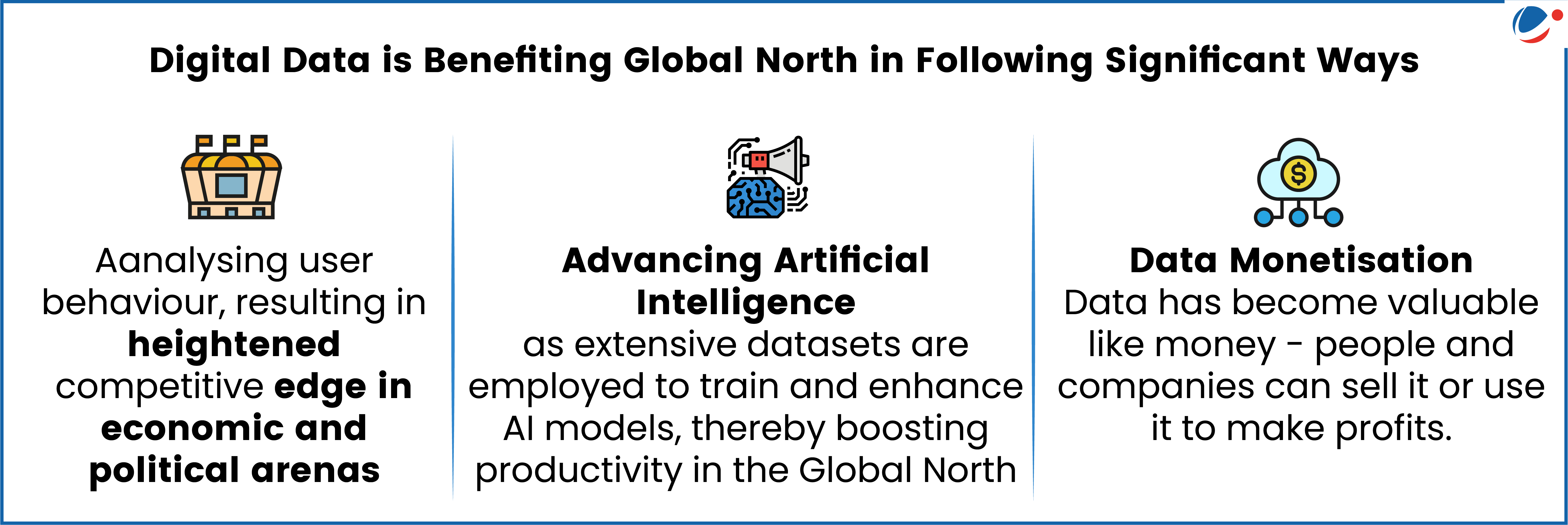VP also warned that nations today face a new kind of colonisation —not by armies, but by algorithms — raising concerns about digital colonialism.

What is Digital Colonialism
- Definition: It refers to a phenomenon where developed nations and their big tech companies utilise digital platforms to control and profit from less developed nations.
- It is mainly concerned with the Neo-Colonialism of the Global South i.e., how the Global North exerts control over the digital sphere of the Global South.
- Example: US-based companies like Google and Amazon collect data from developing nations to reshape various industries (refer to the infographic).
What are the concerns associated with it?
- Loss of digital sovereignty: Developed nations and tech giants set global digital rules.
E.g., in 2024, WhatsApp threatened to exit India over traceability clause of the 2021 IT Rules - Cultural Imperialism: social media and search engines often pushing the worldview of developed countries and marginalizing local cultures.
- Surveillance Capitalism: Companies collect vast user data without consent, violating privacy and civil rights.
Ways For Tackling Digital Colonialism
- Enhance Digital sovereignty: Build indigenous digital systems e.g., ONDC (Open Network for Digital Commerce), India Stack.
- Enforce Data Localisation: India’s Key initiative in this direction is refusal to sign the Osaka Track on data flows and enactment of Digital Personal Data Protection Act (DPDP Act), 2023.
- Reduce Import Dependence: Focus on local production in critical sectors like defence, space, and science. E.g., Make in India initiative, Chips to Startup ('C2S') programme, etc.
- Update Policy: UNCTAD’s 2021 report urged countries to regularly review data flow policies to balance economic growth, public interest, and a connected global digital ecosystem.






